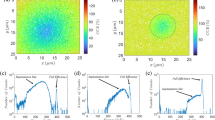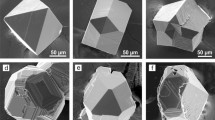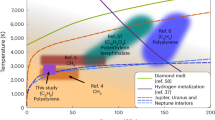Abstract
THE response of six diamonds as conduction counters for α- or β-radiation was determined, using as a criterion the maximum pulse-height versus applied-field curve obtained under conditions of minimum polarization. Without removal from their holders, the diamonds were then exposed to electron bombardment from the 15 MeV. linear accelerator at St. Bartholomew's Hospital Medical College, the counting response being redetermined after each successive bombardment. The electron beam from the accelerator passed through a water collimator. The diamond holders were cooled by water, and the overall temperature of the diamonds was kept below 70° C. during the bombardment. Radioactivity induced in thin strips of copper was used for the routine electron flux dosimetry, the absolute flux estimates being obtained by comparison with calorimetry measurements.
This is a preview of subscription content, access via your institution
Access options
Subscribe to this journal
Receive 51 print issues and online access
$199.00 per year
only $3.90 per issue
Buy this article
- Purchase on SpringerLink
- Instant access to the full article PDF.
USD 39.95
Prices may be subject to local taxes which are calculated during checkout
Similar content being viewed by others
References
Benny, A. H. B., and Champion, F. C., Proc. Roy. Soc., A, 234, 432 (1956).
Author information
Authors and Affiliations
Rights and permissions
About this article
Cite this article
STRATTON, K., DOLPHIN, G. Electron Bombardment of Counting Diamonds. Nature 178, 208 (1956). https://doi.org/10.1038/178208a0
Issue date:
DOI: https://doi.org/10.1038/178208a0



